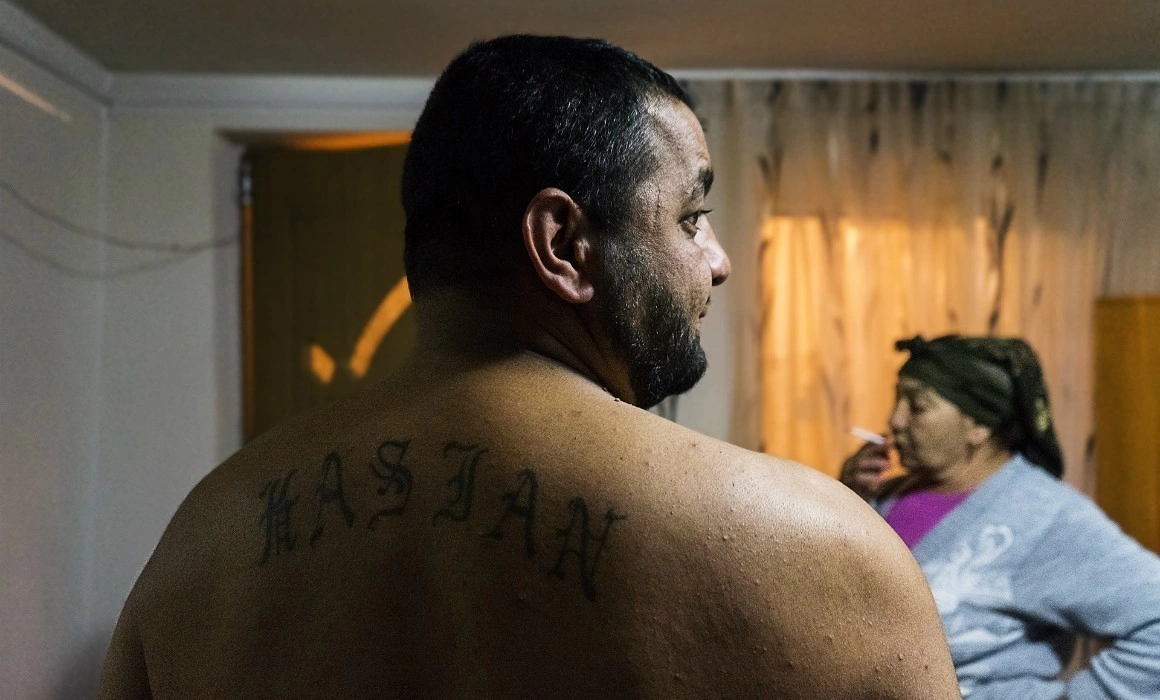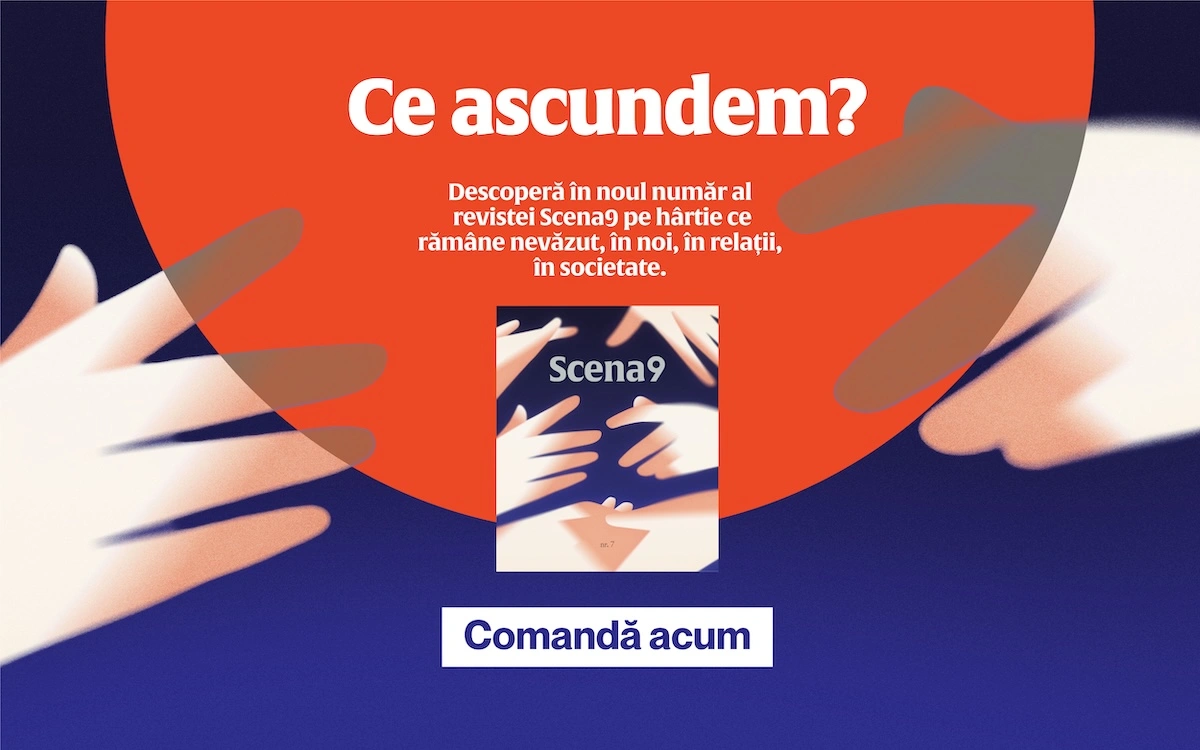How a heterosexual, Roma man from a traditional community in Ploiești, father of three, came to play the lead in a film about gay love.
This article was originally published in Romanian on January26, 2018.
Vasile Pavel goes by Digudai. He’s a large man, 37 years old, a bouncer at a nightclub in Ploiești, a bodyguard to a city politician, and he steps onto the red carpet. It’s September 27th 2017, the seventh day of the San Sebastián International Film Festival.
Director Ivana Mladenovic, writer Adrian Schiop, producer Ada Solomon along with the rest of the film crew of Soldiers. Story from Ferentari stand beside him just after the premiere. They’re all dressed to the nines. Here, Vasile Pavel, Digudai, is no one’s bodyguard.
People around are applauding wildly. A journalist from The Hollywood Reporter shakes his hand and congratulates him. Digudai shined in one of the film’s leading roles. He played Alberto, a Roma ex-convict from Ferentari who falls in love with Adi, a 40-year-old Ph.D. candidate. The latter moved to the Bucharest neighborhood to research Manele music.
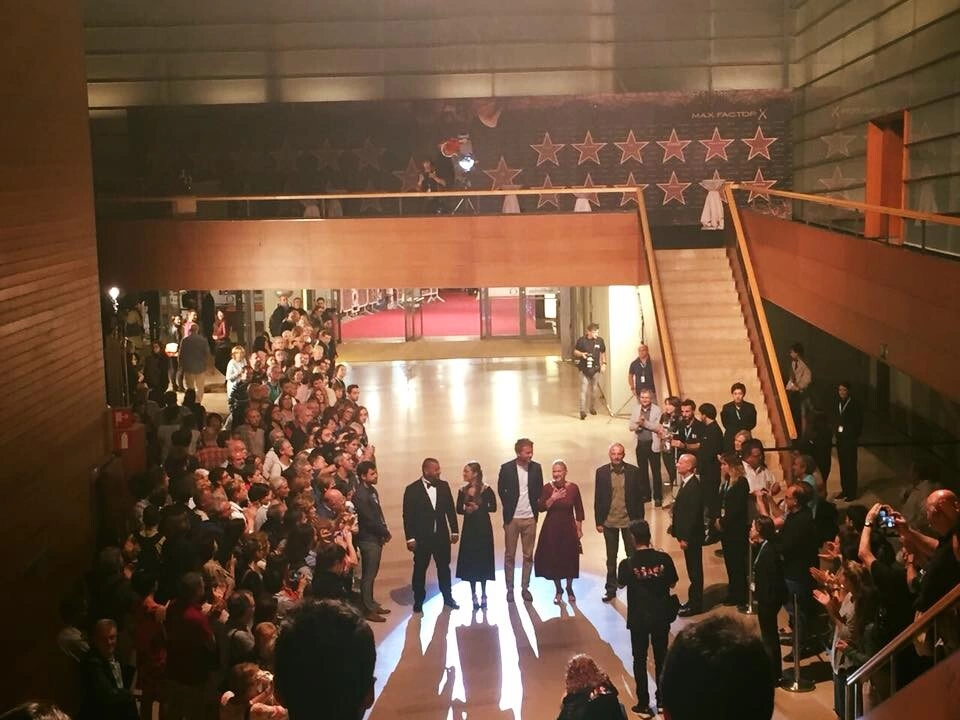
The screenplay was written by Ivana Mladenovic with Adrian Schiop, based on Schiop’s novel by the same title. While the book is autobiographical, he overlays several layers of fiction. In the film, Adi plays the role of himself. The film adaptation of the novel forced many people out of their comfort zone: for Schiop and Digudai, it’s their first acting roles and it’s the first narrative, feature-length film for Ivana Mladenovic.
Digudai smiles wide on the red carpet. It’s the first time he’s seen anything like it. “No one has ever applauded me before. Booed, cursed, yeah. But applauded, no.” He doesn’t even realize how long the red carpet is, if it’s 20 meters, 30 meters, 50 meters. And it doesn’t matter. “In those five minutes, you feel like you’re in another world.”
***
The youngest of five children, Vasile Pavel spent his childhood in the Radu of Afumați Roma neighborhood in Ploiești with about 3,000 residents. His father was a worker at a garment factory, and his mother was a cleaning lady for buses. They raised their children in harmony, no arguing in the house, no hitting, Digudai says.
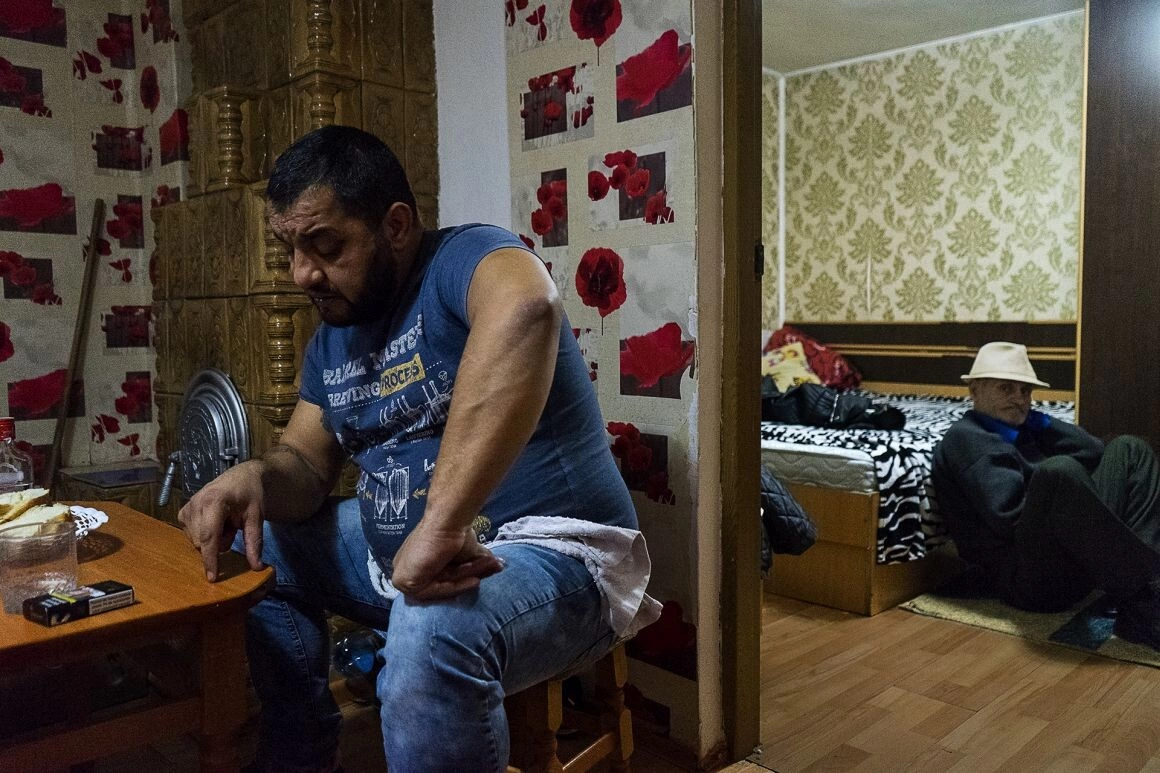
At the neighborhood school he attended in the ‘80s, around 85% of the children were Roma, and the rest, Romanian. On more than one occasion, he saw the Romanian mothers scolding their sons when they found them playing after school. “’Didn’t I tell you? No hanging around with Gypsies.’” Sometimes they would spank them so they would learn to listen to their parents next time. “Being a kid, I felt bad. Why do they hate Gypsies?”, he wondered. Some boys continued playing with him, others didn’t.
In third grade, he worked up the courage to ask a Romanian classmate:
“Hey dude, why doesn’t your mom let you hang around with Gypsies?”
“Because you guys are bad, dude. You take people’s children, put them in a bag and sell them.”
He didn’t know how to respond. He didn’t see that in his community. On the contrary, he saw that the Roma are generous. “When someone died in the mahala and their family couldn’t afford to bury them, they raised money together. Everyone gave as much as their heart was big, or as much as they could afford.” And he saw how caring his parents were with those who had less than them. “’Let’s help him, give them this salami and this meal’; these are the kinds of things I saw from my parents.”
At 14, he started working out. His big brother was doing karate and weight lifting and he got Digudai into training, too. In the evenings, he and his friends went to the park to compete, “sometimes for fun, to see who’s better, other times for money.” Besides the moves he learned from his brother, he got others from Van Damme, his hero from the movies. “When I was that age, nobody could beat me.”
The mothers of other children started showing up more frequently at his mother’s gate. “’Look here, missus Silvia, your boy beat up my boy.” That’s where his sister got his nickname from, Digudai. Digudai was a man in the community who would challenge everyone on the street when he was drunk.
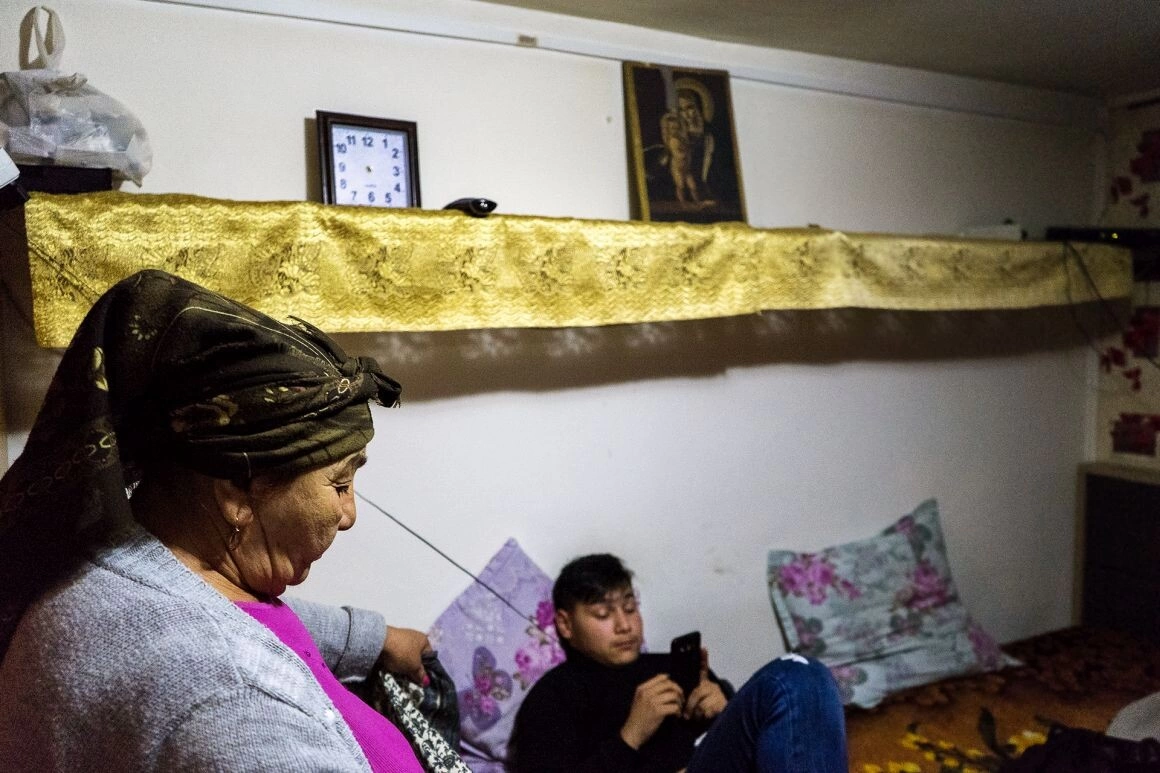
When he was angry, he cut his arms. Three, four boys gathered looking for bottles and jars to break. They picked out the sharpest shards and started cutting their forearms. The boys would cut one another. “The boy who gave the largest one was cooler.” Sometimes they had an audience of older boys validating their manhood: “’oh, man, he really cut himself.’” “You had to look tough in front of them. That’s where my name comes from, cuts and beatings.”
Digudai says he was a naughty child, he did some bad things. “I stole, to be honest. I had a gang of friends and we’d say: ‘man, let’s take something. Where should we go?’” He’d take his money and go watch adult films or action movies. “This was our idea of fun. One guy would show porn at his house, but he wouldn’t let us in because we were underage. We paid him double and bought him drinks so he’d let us in.”
At 16, he started working as a bouncer at a local club and, when he turned 18, he married Corina. He says he calmed down then. “I said, if I go to jail, it’s not that I would suffer, but I would make my family suffer.” On his right arm he got a tattoo with a man’s vices: a pool ball, a gun, a grenade, a pair of dice, a bottle of alcohol, a naked woman. All the symbols were covered flames, and a little demon stood in the middle. “It’s like, let them go, let them burn.”
Digudai and Corina have three children, Rică, Kasian and Teodora, and they have a granddaughter from Rică.
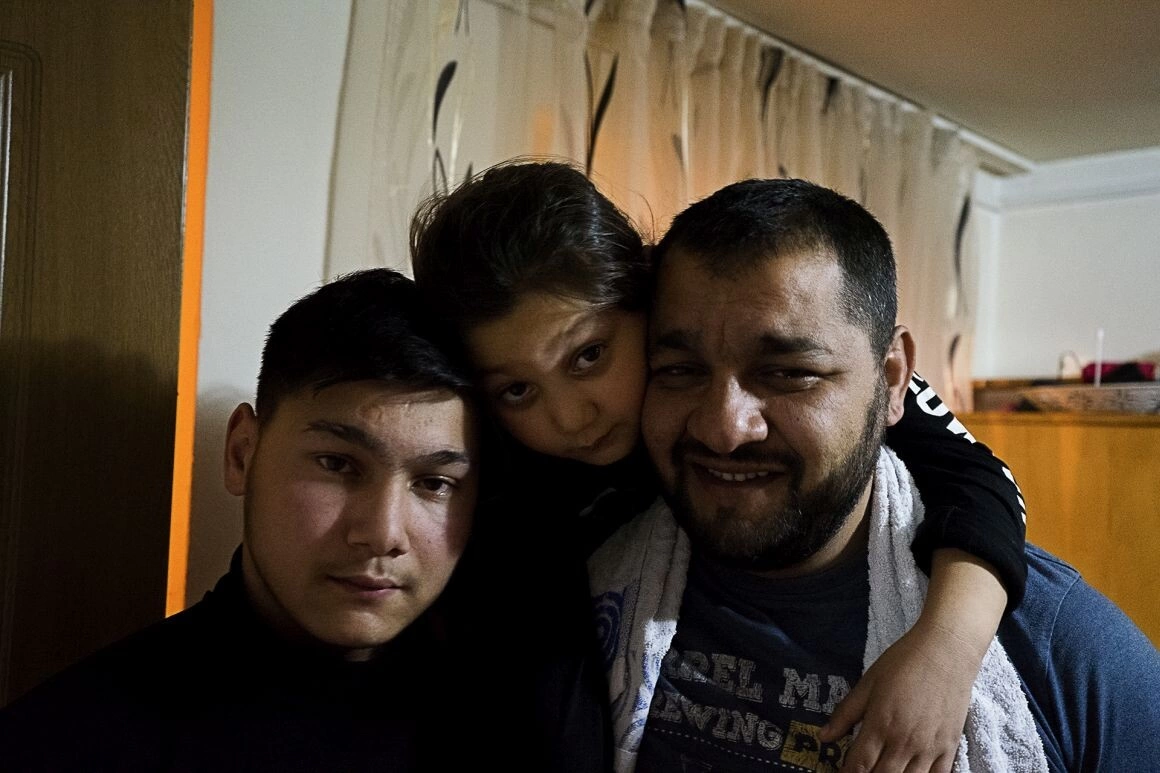
***
One day, in the summer of 2015, Digudai called an old friend from Ploiești, George Vasilescu, a painter and tattoo artist who’d moved to Bucharest. He asked when he could get a tattoo on his forearm with Aleasa (The Chosen One), a word he flatters Teodora, his daughter, with. George said, “whenever you want, Digudai, come to Bucharest and we’ll do it. No problem.” After about a week, his friend called back and asked him: “hey, Digudai, you wouldn’t want to play in a movie, would you?”
He started laughing. He didn’t think he was anything like the man George said was needed for the role—muscular, tattoos all over. “Hey, mister painter, I’m not the man you knew back then. Brother, my muscles are long gone.” But instead, he has a friend who’s a bouncer and he’s just what they’re looking for—ripped, tattoos all over, Digudai told him.
Some days later, he drove his friend to Bucharest to meet Ivana Mladenovic, because the guy didn’t have a license. What’s more, he thought if his comrade gets the role, he’d get a commission.
On a sweltering day, Ivana waited for them in Giulești, at the Roma Museum. Although his friend impressed her physically, the man had nothing childish about him, a necessary quality for the role. However, Digudai seemed different. “When I first saw him, I was sure he would be the one. The way he behaved won me over. He was playful, somehow.” After taking pictures, Ivana called them both to casting. Digudai didn’t perform well. “Everyone who saw Digudai’s first auditions said ‘no way, there’s no feeling, there’s no way he can do it.’” But she held out faith in him
She told him, “man, you have to be Alberto.” Digudai accepted, but he was worried that he wouldn’t be able to do it, that the role would be too difficult, that he doesn’t have the experience for it.
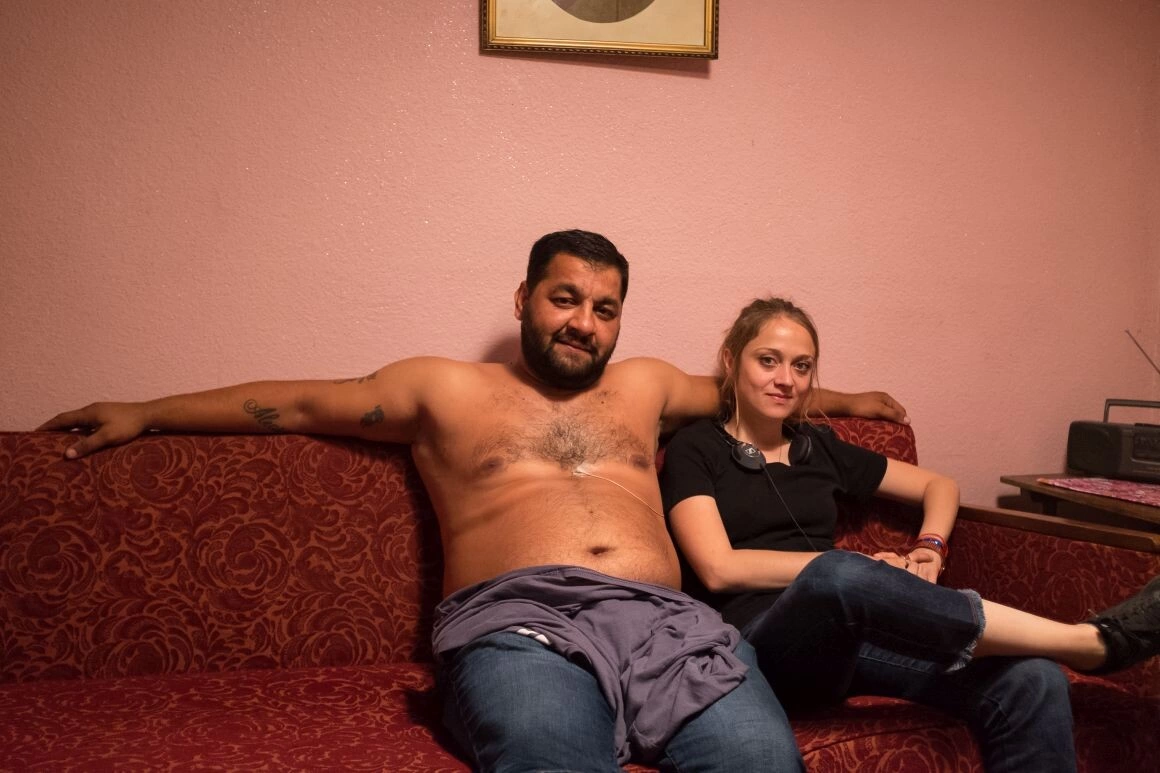
Ivana told him from the start what the film was about, but Digudai thought the focus would be on the day to day in Ferentari. “I was like, it’s a rough film with drugs, gangsters, and I play a jailbird.” He didn’t seriously consider the fact that he’d be playing the role of a gay man. Digudai says that, with Roma, the term gay isn’t used, but twink or faggot, and it’s an embarrassment to be gay. “They say it turns the family into a laughing stock. Especially if the twink is from a well-known family, everyone will talk about it: ‘hey man, that’s a tramp, he does this and that.’” Even for heterosexual Roma, when it comes to sex, a lot is off limits. “We say a man who does oral is a licker. It’s really, really humiliating, and even more humiliating for women to do the same.” This rule is especially true if you’re an average Roma, Digudai says. If you’re “posh and travel around Europe,” oral sex can be acceptable.
Digudai says he’s never had anything against homosexuals. He’s even had some gay friends and, out of curiosity, he would ask them what it’s like to be different. Still, the idea that he would play the role of a gay man wasn’t the most comfortable one. What really got him into the project was his fascination with appearing in an action movie shot in Ferentari, and the money. “At first, I thought about the money. That’s the main reason I did it, not for fame or anything else.” He knew he’d earn enough so that, with what he already had saved, he could build a house.
For one year he practiced with Ivana once or twice per week, because his jobs wouldn’t allow for more. Some weekends, in the morning after a shift at the club working as a bouncer, he went to Bucharest to practice.
Ivana spoke a lot with him and taught him how to really read the lines. “See, for this line you should be angrier, more upset.” After a few months, Digudai started doing readings with the actors auditioning for the role of the Ph.D. candidate who moves into Ferentari to finish his thesis on Manele music. “There were some actors I got along well with going through the lines. I said, I like talking with this one. Alexandru Papadopol was at casting, too, but with others, it was more difficult.” It was then, Ivana says that Digudai realized how he should speak to make it authentic.
After about a year and dozens of actors in casting, Ivana thought to have Schiop give an audition. She gave them a scene where Digudai gives Adi a massage and she took their picture. “Guys, this is the film I want,” she told them immediately. “The way they talked, they were becoming friends already, it seemed like a regular conversation,” Ivana says reflecting on the revelation she had. At the end of the audition, she remembers Adi getting upset and storming out.
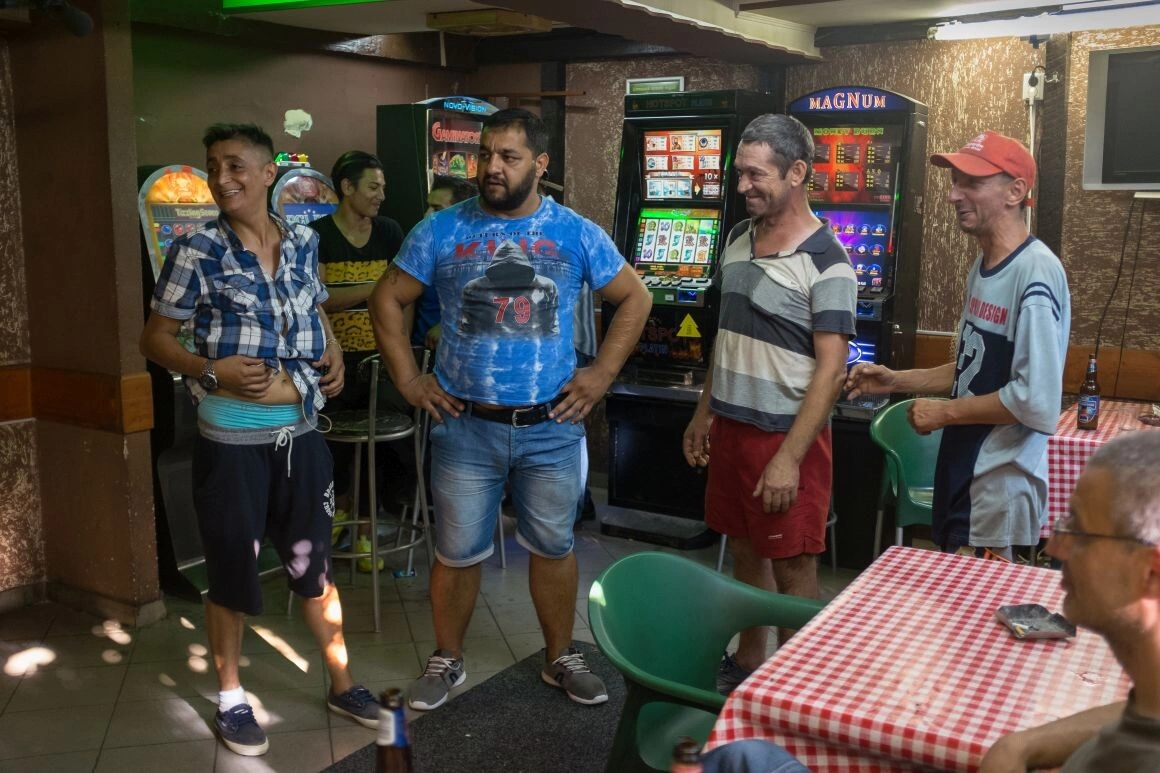
***
Adi didn’t feel comfortable in front of the camera, but reluctantly accepted to play the role of himself. Then, they spent a month and half in an apartment in Ferentari, practicing every day, and they spent the same amount of time filming in the same place.
On one of the first days in the neighborhood, Ivana showed Digudai the real Alberto. “I don’t think I’m handsome, but I’m not as run down as he is. He’s more of an animal than I am, his gut is huge. He’s a disaster.”
In filming, the most difficult scenes for him were the tender, sexual ones, “when I had to hold him in my arms, to get on top of him.” The shower scene with him and Adi naked was the peak. “Then I felt the absolute worst. There was a bunch of people there, girls, too. I was so embarrassed.” They filmed the scene several times. “That’s when I felt like I was going to explode, I felt like I needed to hide away, to not talk to anyone, to smoke a cigarette or two and calm down.”
In moments like these, he thought it was too much for him. But in his mind, there was no quitting. “I’m really a man of my word. When I saw I’ll do something, I do it. I would have felt guilty with Ivana. I know how much she put into this movie and I didn’t want to let her down. I said yes to plenty of things in my life that I shouldn’t have.” Still, Digudai established boundaries that he wouldn’t cross under any circumstance: he won’t kiss Adi on the lips, and he won’t drink out of the same bottle as him. “I have nothing against what he does, it’s his life. He’s my brother and I respect him but I won’t do that. I ate with him at his place, he makes great food, but I won’t drink out of the same bottle.” Ivana respected his decision. There is no kissing in the film, and the boys never share the same beer.
He told his wife, his two boys, 17 and 12, and his girl, 7, generally what the film was about, but didn’t give details. “I told them Adi plays the role of a twink and the film is about his daily life. My family understood, no problem. With the money I got after the film, I built my kids a house. I didn’t mess around with the money.”
He couldn’t really talk earnestly with his friends about playing in a gay film. “We joked about it. Hey, man, it’s not like that. There are drugs, and misery, too. And I dance, man”.
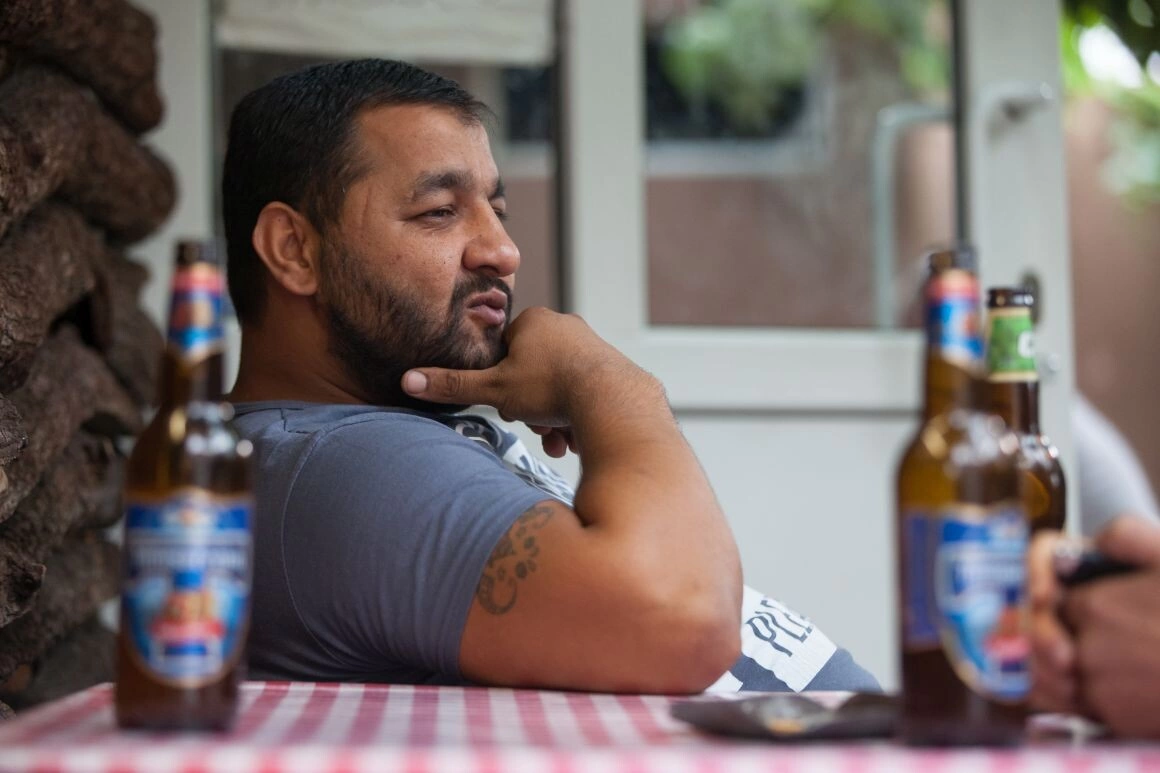
The best day of filming, for Digudai, was Ivana’s birthday. He and Adi chipped in to get her a bouquet of 33 roses. “I never got a girl a present before, a flower or anything. But I consider Ivana like a sister. We got through tough times, we argued, we cursed at each other, but all three of us got back together in the end, just like a family.”
Then, towards the end, Digudai started realizing that he’s living a special moment, and that the film has real importance. Then, he started enjoying it without thinking about the money anymore.
Two days after the end of filming and celebrating with the whole film crew, he was taken to the emergency room of the County Hospital of Ploiești. He’d lost blood and was admitted for a few days. It’s an ulcer because of stress, the doctors told him. “All the frustration and all the joy, I was keeping it inside.”
He was relieved that he didn’t get sick until the very end. It was then that he realized how many good friends he’d made in that period. The musician Andrei Dinescu called him and said not to stay in Ploiești if they have to operate, but to come to Bucharest, that he could stay at his place. But there was no need. After a few weeks he got well.
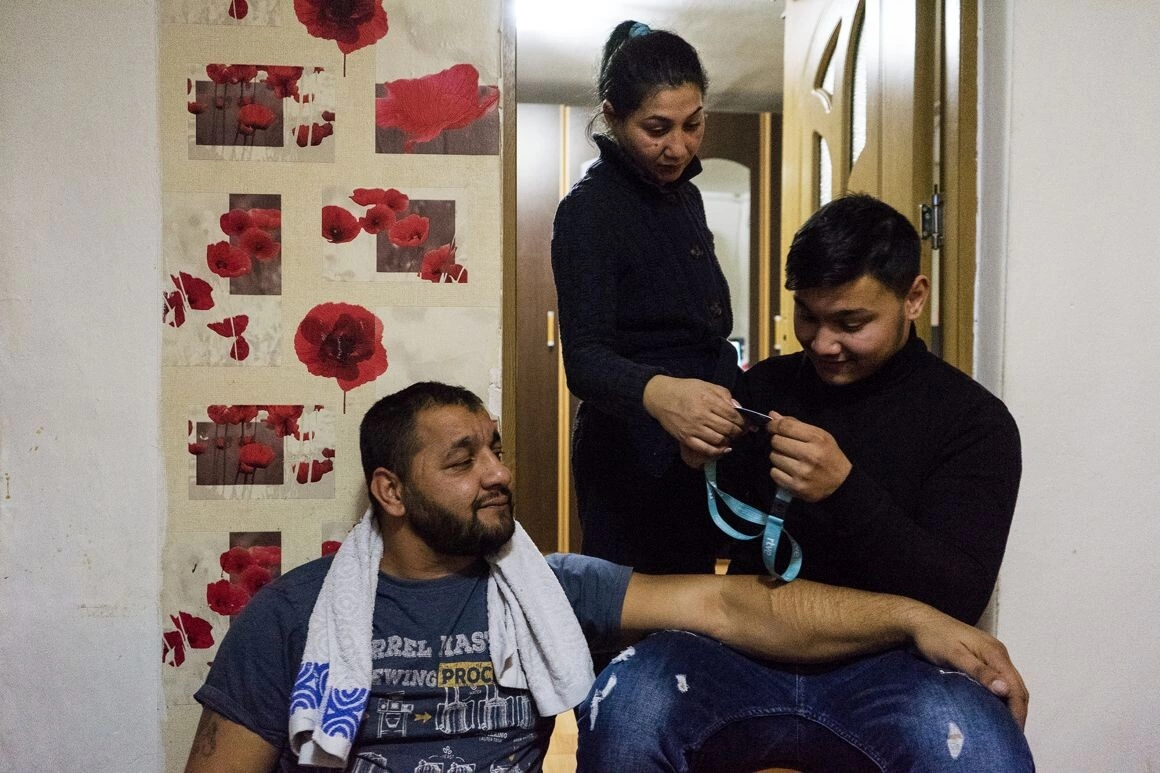
***
At home, in the Radu of Afumați neighborhood of Ploiești, Digudai sits on a carpet, next to a closed heating stove. He takes a long drag from a cigarette and a swig of vodka from the bottle. He’s a little upset—some family problems. “Play that song again, my queen,” Digudai tells his daughter, referring to some Brazilian funk, then a children’s song with Snow Queen, both his favorites. After the girl goes to the computer and pushes play, he holds her in his arms and kisses her cheeks.
Rică, his oldest boy, brings a chair over next to him and puts his arm proudly around him. “Gypsies are looking forward to seeing the movie. A gypsy swore ‘on my children’s lives, if I see Digudai on TV, I’ll break it…’”, Rică says and laughs.
His wife brings over his artist’s badge from San Sebastian. Digudai can remember how happy he was when people stopped him on the street for an autograph, to take selfies with him or congratulate him. In spite of this, he says, the experience hasn’t changed his life or personality. “I’m the same person I was before. I went back to my job to work, to bring home money.”
And there’s more. He thinks the universe got him a present. “In 2002, right in San Sebastian, I was arrested because my visa expired, and they sent me back into the country. In 2017, I was on the red carpet. There’s a difference. God… I kiss His little soles and feet.”
UPDATE, September 22, 2022: Imaculat, directed by Monica Stan and George Chiper-Lillemark and the newest film in which Vasile Pavel “Digudai” appears, is Romania’s proposal for a Best International Feature Film at the 2023 Oscars. The film tells the story of Daria (Ana Dumitrașcu), a young heroin addict who enters a rehab clinic, where she has to face a world opposing the one she comes from. Spartacus (Vasile Pavel), one of the three main characters, also belongs to this new world.
Translated by Andrew Davidson-Novosivschei
